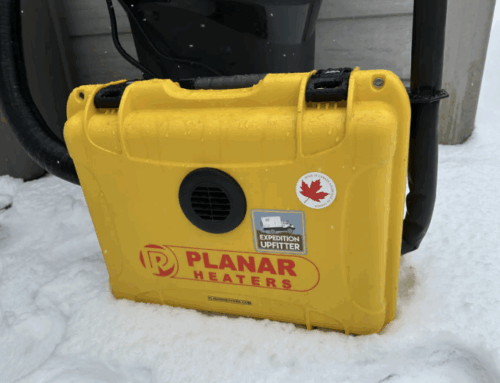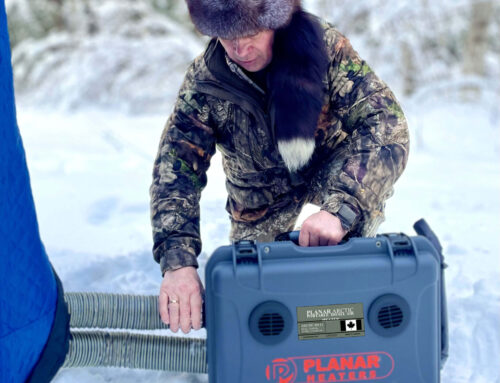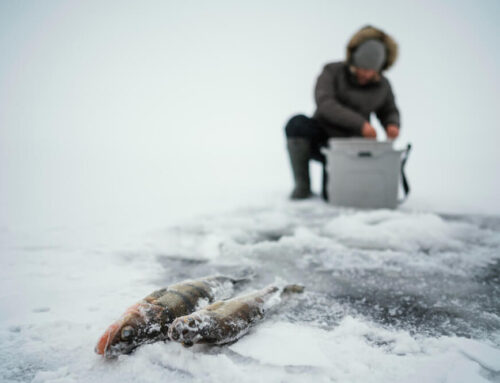Words and photos from ![]() 4wd talk
4wd talk
I’ve owned this Planar diesel heater (it’s the 2kW version) for five months and have used it quite extensively. Based on my experiences with it, I can safely say that out of all the diesel heaters I have tested to date, this one crushes the competition.
But the proof is in the pudding, so in this Planar diesel heater review, I’ll share some real-world experiences I’ve had with this heater to illustrate why it has been such a great investment for my overlanding rig.
Planar Diesel Heater Specs and Features
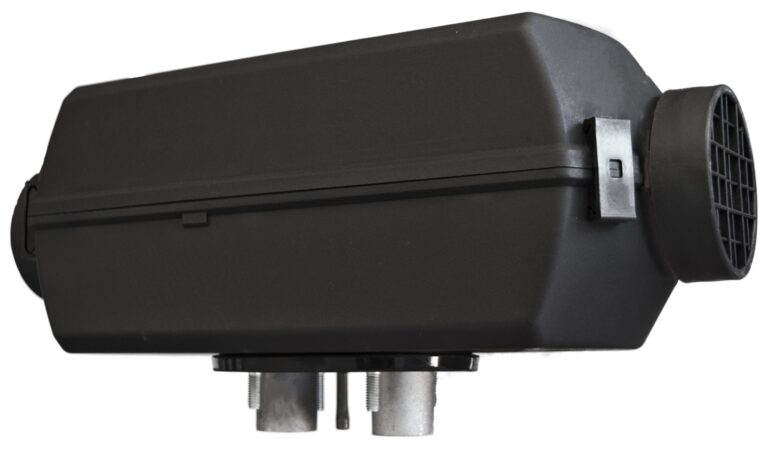
First, let’s review a few specs and features of Planar Diesel Heater so you have a better understanding of what it offers for your overlanding setup and why it’s such an easy way to get heat while camping.
This unit is a forced-air design that offers instant, dry heat for your tent, RV, boat, or other vehicle (up to 7,000 BTU/hour). It operates on diesel or kerosene as well as 12V or 24V power, and you can get about five hours of operation from one liter of fuel.
The Planar Diesel Heater is ultra-compact and offers plug-and-play installation, a full self-diagnostic system, automated temperature control, and efficient performance, all while operating quietly so as not to disturb your sleep. The unit also comes with a two-year warranty on parts and labor.
Planar Diesel Heater Installation
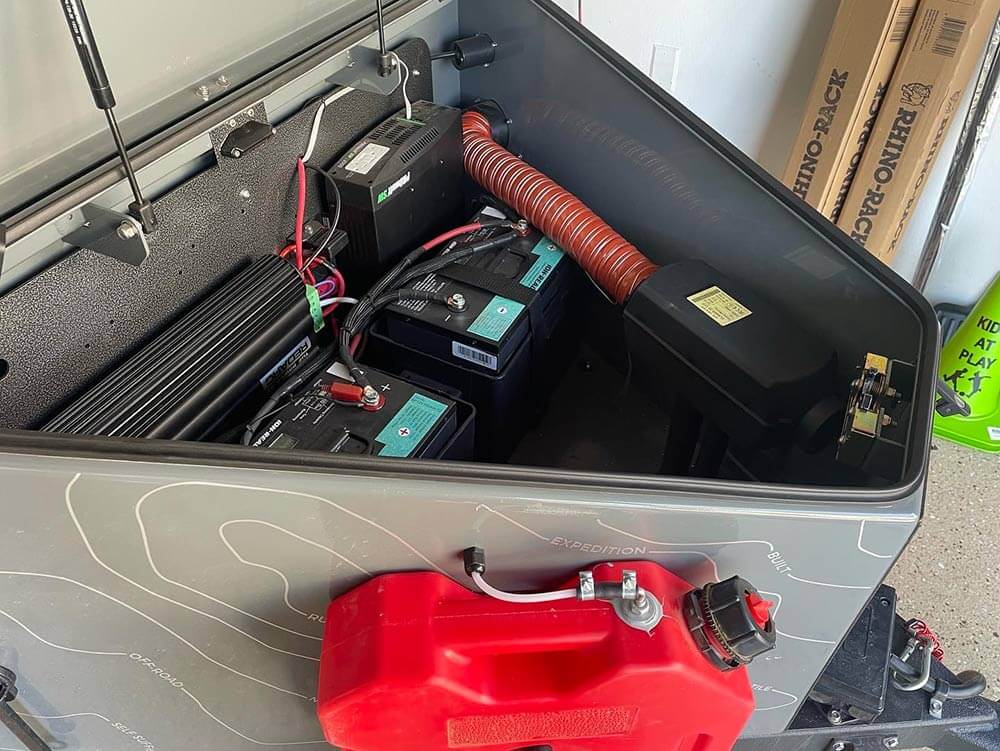
Shown above and below is the final result of installing this Planar diesel heater in the nose of my Turtleback Expedition Series Trailer.
As you can see, the heating unit fits perfectly in the corner of the nose, and there’s plenty of room for routing the heat duct along the side of the hose, past my Briter Products Lithium-Ion batteries, and out the side of the nose, where the duct can be run up to my rooftop tent.
Because the heater comes with an installation kit and is a plug-and-play type of install, it couldn’t be an easier process to set up!
Using the Heater in Big Bear
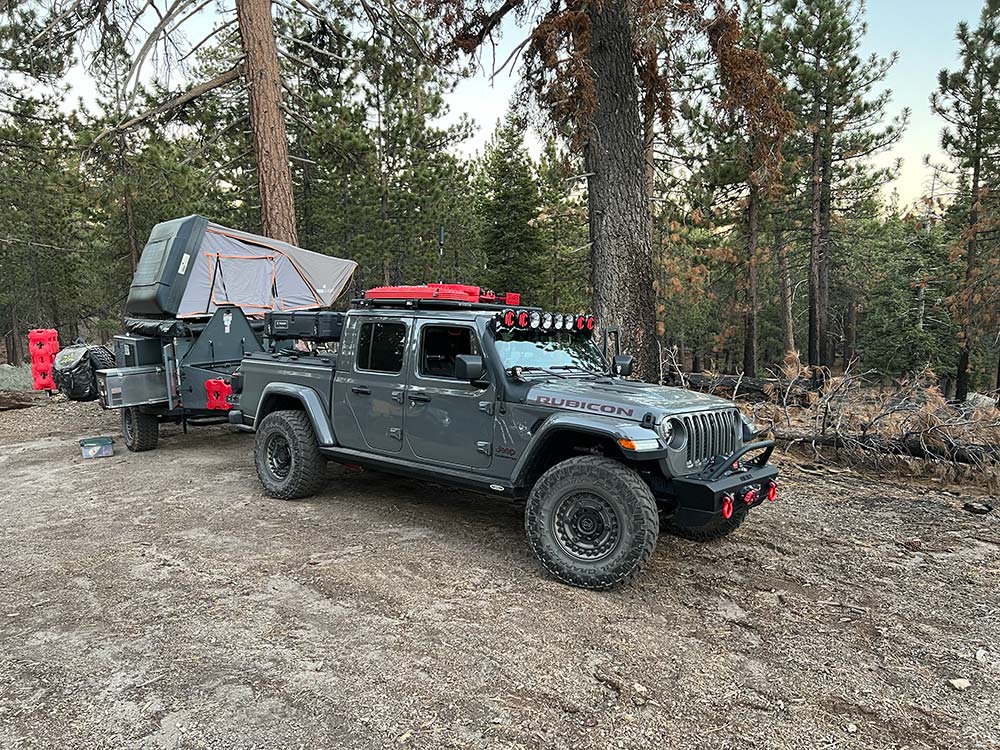
Big Bear was the first cold weather camping trip I took last fall, with temperatures down to about 30F. It was also the first trip that I used kerosene rather than diesel in the 2kW Planar diesel heater (it runs on either fuel, obviously, and also requires 12V or 24V power).
As I understand it, the benefits of using kerosene rather than diesel are that it runs cleaner and burns better at higher altitudes. So, I thought I’d give it a try.
As you can see in the video above, there wasn’t much wind as a result of the awesome campsite we found that shielded us from most of the wind. Yet, it did get cold that evening!
I set the thermostat on the Planar diesel heater to 70F, and it maintained 68F in my rooftop tent throughout the night. Success!
Since this was just a quick 24-hour trip, I wanted to give the Planar diesel heater another test run, so I set out for a two-night trip to Death Valley.
Do you Need a Diesel Heater in Death Valley?
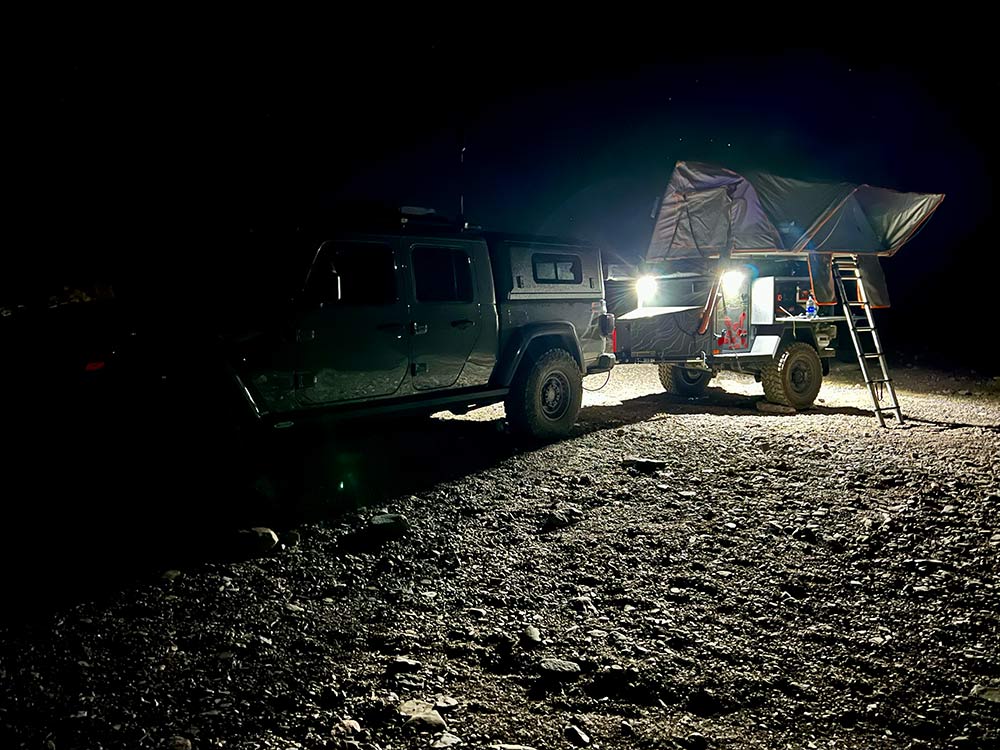
Yes, you need a heater in Death Valley! The first night of the stay, the wind was howling. To make matters worse, the temperatures dropped into the 20s. Thankfully, the Planar diesel heater was up to the task…
This time, I ran a kerosene alternative in the heater, and again I set the thermostat at 70F.
The 2kW heater did an amazing job of keeping my large rooftop tent warm all night long. Here is a shot from inside my tent:
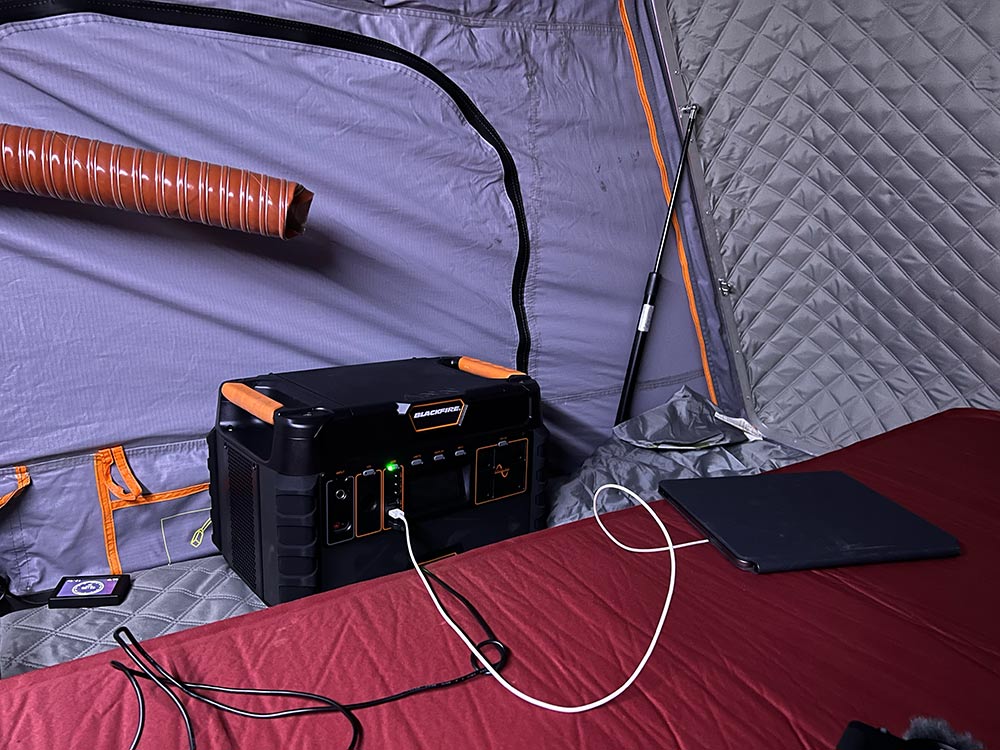
As you can see, the heater hose just hangs from the wall, points back, and circulates the heat nicely throughout the tent.
The included thermostat (Controller PU-28) means that I can control the temperature and output of the heater from the comfort of my bed.
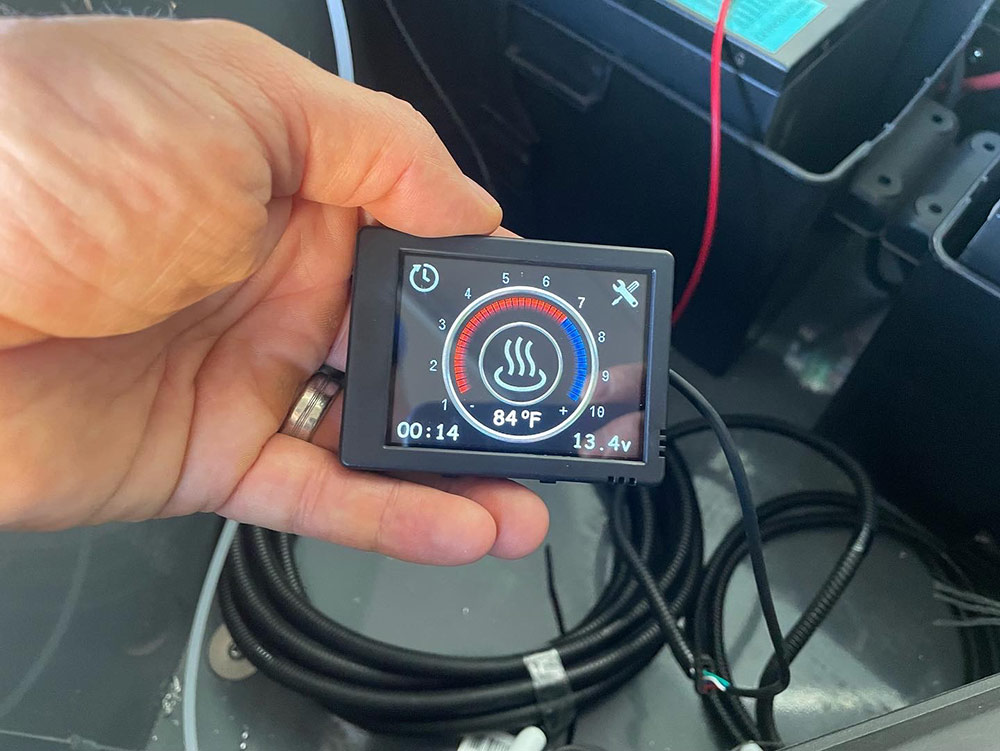
Now, the downer about having a Planar diesel heater system like this is that I’m a photographer and need to get up early in the morning. When it’s so cozy and warm in the tent, yet cold as hell outside, it requires a little more self-discipline to drag myself outside.
Indeed, at 5 am, I managed to extract myself from bed and drive up to Mesquite Flats to meet up with Jeff Sullivan Photography Workshop, as seen below:
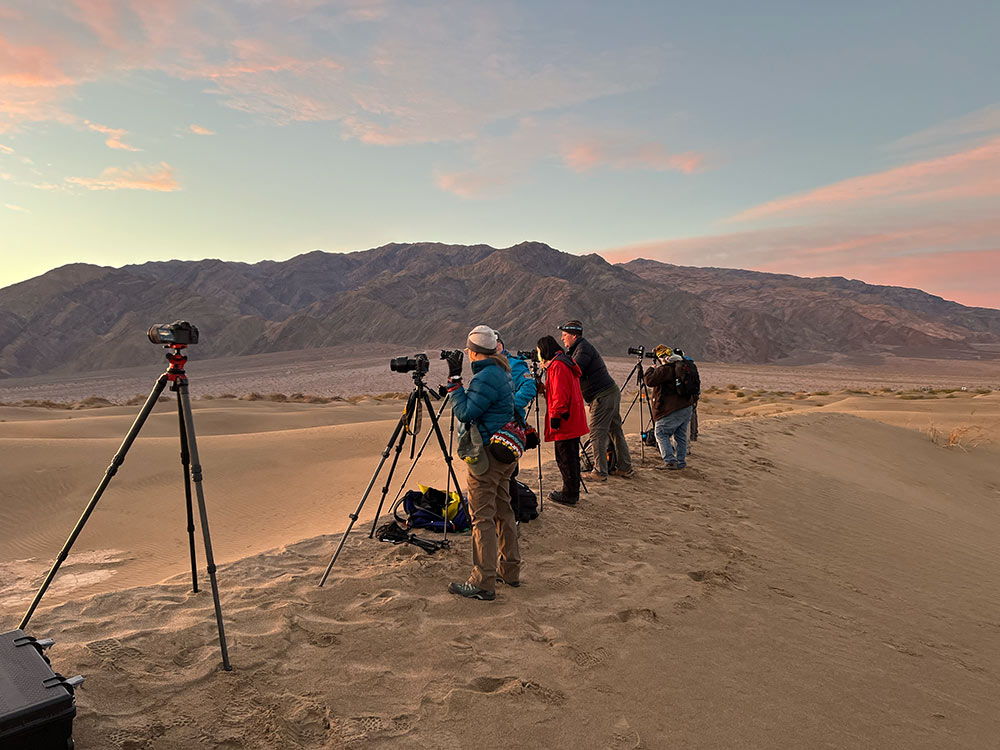
Despite being cold, it was great to get out and watch the sunrise with my fellow photographers in such a beautiful place!
But that wasn’t the only meetup I had in Death Valley…
On night two of the trip, we met up with about 20 folks with the Turtleback Trailers Herd event at Rhodes Cabin.
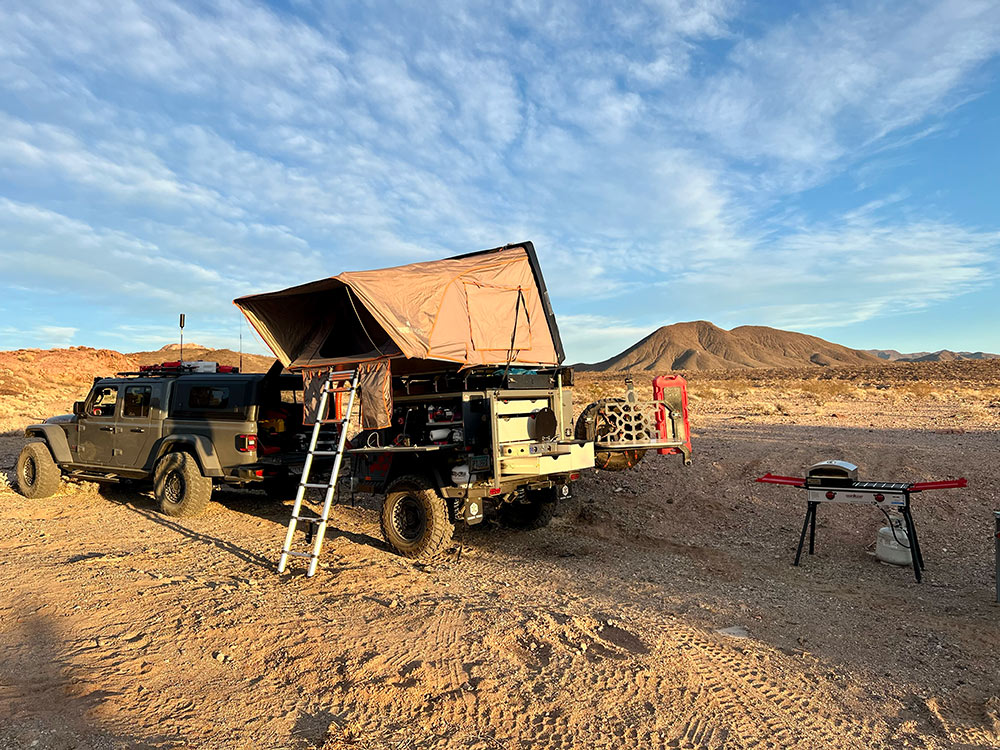
While this location is a bit off the beaten path, I highly recommend it. There’s lots of space for you and your buddies, excellent views, and since there’s no cell reception, you can unplug from the world for a little while!
This spot ended up getting down into the low 30s that night, so again, I was happy to have my Planar diesel heater setup. In fact, I was the only one with a diesel heater in my tent, so I got a TON of questions from folks about the system, the installation process, and the economics of it as it pertains to overall cost and efficiency.
Speaking of efficiency, I can run this thing for four nights on a single two-gallon tank of fuel and still have fuel left over. And with minimal draw on my battery, I get a double-whammy of efficiency!
In terms of cost, you’re looking at around $950 (a little more or less depending on the model you choose). And while that might give you a little sticker shock, believe me when I say that having a warm, dry tent in the dead of winter is well worth the price!
Why I Recommend the Planar Diesel Heater
At the end of the day, I just can’t recommend this 2kW diesel heater enough.
As I noted earlier, installing the heater in my trailer was a breeze. Setting it up at night is even easier – it takes me about three minutes to fully deploy my tent, and once that’s done, it takes another minute or two to route the heating duct up into the tent. So, about five minutes is all I need before I can start getting my tent warm and toasty.
I also appreciate that I don’t have to worry about condensation inside the tent. Unlike other heating options like propane, this Planar diesel heater puts out warm, dry air instantly. I can keep the heat going all night long and wake up in the same bone-dry environment I started with. Try doing that with your propane Buddy heater!
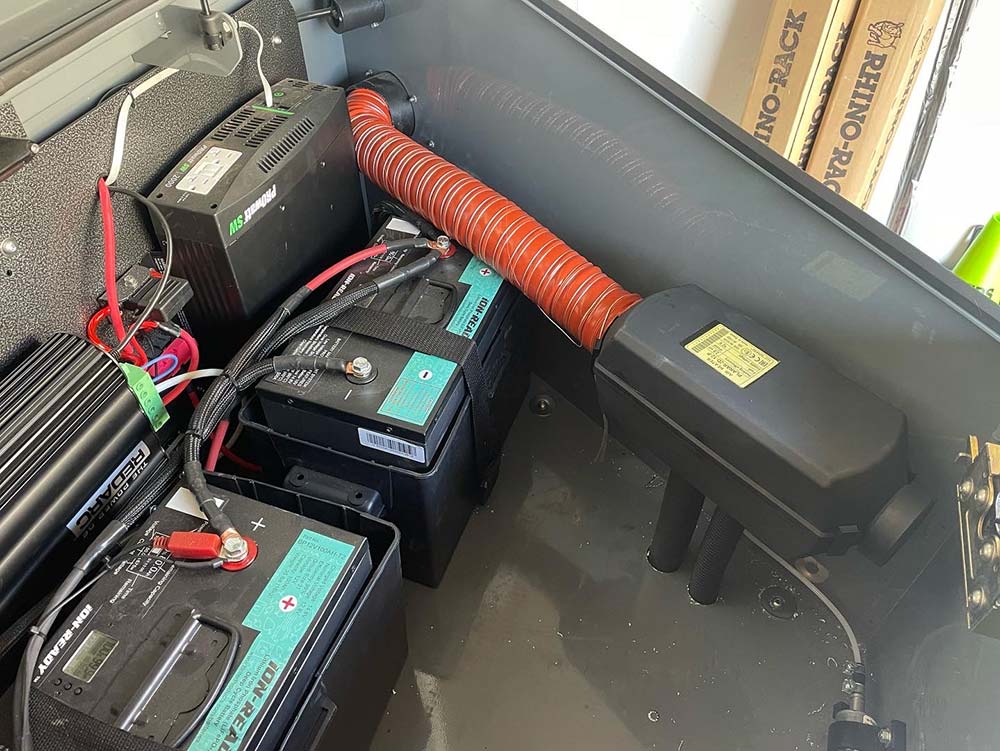
This heater setup also has the advantage of eliminating concerns about carbon monoxide poisoning. The only component that’s inside the tent is the heat duct. As I discussed before, the diesel heater is below mounted inside the nose of the trailer, so the exhaust is nowhere near the tent.
Taking all that into consideration, this 2kW Planar diesel heater is hands-down one of the best modifications that I’ve made to my trailer (I also have a 4kW Planar diesel heater that I will review in the coming weeks in case you need even more heat output). Between the ease of installation and the sheer functionality and performance of this thing, it was well worth picking one up. On top of that, the quality of the components is second-to-none.
If you do any cold weather camping, a 2kW Planar diesel heater is an investment you should seriously consider making. It’s enabled me to go camping year-round – what’s better than that?!

